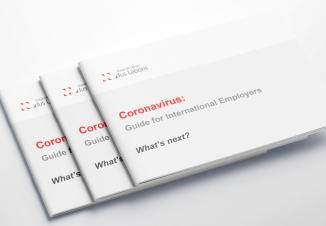
Extended ‘rest days’ for employees
Following the notice issued by the State Council to extend the Chinese New Year holiday for another three days (i.e. from 31 January to 2 February), many local governments have further requested local employers (excluding those in essential or special industries) not to resume work until 10 February or a later date. During these extended ‘rest days’, some employers that are qualified to allow workers to complete tasks at home may plan to arrange for workers to work at home, but whether this work would be regarded as ‘overtime’ varies from locality to locality. For example, according to the Shanghai government’s interpretation, work from home during these extended ‘rest days’ should be regarded as overtime work, meaning overtime compensation or compensatory time off should be granted to reflect this. In contrast, this is not the case in Beijing where work from home during these extended ‘rest days’ is treated as a normal but flexible working arrangement in response to the coronavirus.
Safe working environment
Employers in essential industries, such as medical equipment, protective product production and enterprises that ensure the operation of the city and guarantee residents’ daily necessities (e.g. water supply, gas supply, power supply, supermarkets and communication), and organisations in other special industries such as financial institutions may need to arrange for their employees to work normally after the Chinese New Year holiday. In order to ensure a safe and hygienic working environment, these employers should take appropriate labour protection and prevention measures following the health authorities’ instructions, such as taking workers’ temperature regularly and distributing facial masks and disinfectant to workers.
Adjusted working arrangements
As a result of the impact of the coronavirus, employers may decide to adopt flexible working arrangements such as reducing pay, changing work schedules or shortening working hours, provided that employees agree to these arrangements. If an employer decides to suspend its business operations and production, employees should be paid normal salaries if the suspension is contained within one full wage cycle; for suspension longer than one full wage cycle, employers may be permitted to pay reduced salary to employees in accordance with the local regulations.
Salary payment for infected or quarantined employees
Employers must pay sick leave salaries and provide other related sick leave benefits to employees who are infected with the coronavirus during their medical observation and treatment period. Employers must continue to pay employees who are unable to work as a result of government quarantine measures or other government-mandated emergency measures their normal salaries.


